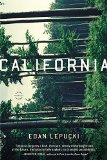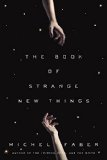Summary | Excerpt | Reviews | Beyond the book | Read-Alikes | Genres & Themes | Author Bio

The Handmaid's Tale meets The Hunger Games in this brilliantly imagined debut set in an ancient culture where only the queen may breed and deformity means death.
Flora 717 is a sanitation worker, a member of the lowest caste in her orchard hive where work and sacrifice are the highest virtues and worship of the beloved Queen the only religion. But Flora is not like other bees. With circumstances threatening the hive's survival, her curiosity is regarded as a dangerous flaw but her courage and strength are an asset. She is allowed to feed the newborns in the royal nursery and then to become a forager, flying alone and free to collect pollen. She also finds her way into the Queen's inner sanctum, where she discovers mysteries about the hive that are both profound and ominous.
But when Flora breaks the most sacred law of all - daring to challenge the Queen's fertility - enemies abound, from the fearsome fertility police who enforce the strict social hierarchy to the high priestesses jealously wedded to power. Her deepest instincts to serve and sacrifice are now overshadowed by an even deeper desire, a fierce maternal love that will bring her into conflict with her conscience, her heart, her society - and lead her to unthinkable deeds.
Thrilling, suspenseful and spectacularly imaginative, The Bees gives us a dazzling young heroine and will change forever the way you look at the world outside your window.
This is an utterly unique, gripping novel whose heady mix of dystopia, naturalism and feminist concern will no doubt draw debate. Built on a daring concept, this is a sophisticatedly executed debut novel. In addition to the human traits she gives her bug protagonists, Paull vividly and accurately lays out the hierarchy of the honeybee colonies — their dangers, joys, devotion to the queen. These complex societies provide fertile ground for exploring daring themes such as religious fervour, police states, gender politics, the very real threat posed by predators (known as 'The Myriad') and perhaps, most relevant, the toxic pesticides sprayed on crops that decimate the hive's population...continued
Full Review
 (583 words)
(583 words)
(Reviewed by Lucy Rock).
The structure of a honeybee hive is both fascinating and highly complex — a pod of thousands of female worker bees, a few hundred male drones in the summer and, at the epicentre, the queen.
As a former queen begins to fail (i.e. ceases to lay eggs due to age or illness), workers will make special, larger queen cells in which nurse bees raise queen larvae, feeding them a special substance called royal jelly. Although ordinary honey bees are fed this very early in their development, queens eat only royal jelly throughout their lives. The nutrient-rich substance allows her to grow to one-and-half times the size of an ordinary bee with a fully developed reproductive system, capable of laying up to two thousand eggs per day.
 Once...
Once...

If you liked The Bees, try these:

by Edan Lepucki
Published 2015
A gripping and provocative debut novel by a stunning new talent, California imagines a frighteningly realistic near future, in which clashes between mankind's dark nature and deep-seated resilience force us to question how far we will go to protect the ones we love.

The Book of Strange New Things
by Michel Faber
Published 2015
A monumental, genre-defying novel over ten years in the making, Michel Faber's The Book of Strange New Things is a masterwork from a writer in full command of his many talents.